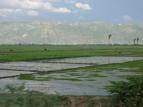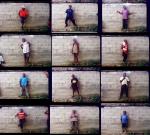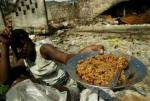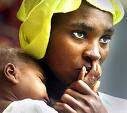Dominico-Haitians: Stateless in the Dominican Republic
 Imagine being born in a country that doesn't recognize you and the possibility of being deported to one that you don't even know. This is a very real possibility for individuals of Haitian descent in the Dominican Republic. Being denied the right to nationality has serious implications ranging from denial of health care, the right to vote, or even the right to work and own property. Human rights activists in the DR such as Sonia Pierre have put their lives on the line to make things better. The issue is, thankfully, receiving more publicity than it ever has before. Below is an article by the New York Times which describes what statelessness is as well as a piece by Refugees International and the Robert F. Kennedy Memorial Center which explains what can be done to remedy this situation.
Imagine being born in a country that doesn't recognize you and the possibility of being deported to one that you don't even know. This is a very real possibility for individuals of Haitian descent in the Dominican Republic. Being denied the right to nationality has serious implications ranging from denial of health care, the right to vote, or even the right to work and own property. Human rights activists in the DR such as Sonia Pierre have put their lives on the line to make things better. The issue is, thankfully, receiving more publicity than it ever has before. Below is an article by the New York Times which describes what statelessness is as well as a piece by Refugees International and the Robert F. Kennedy Memorial Center which explains what can be done to remedy this situation.








